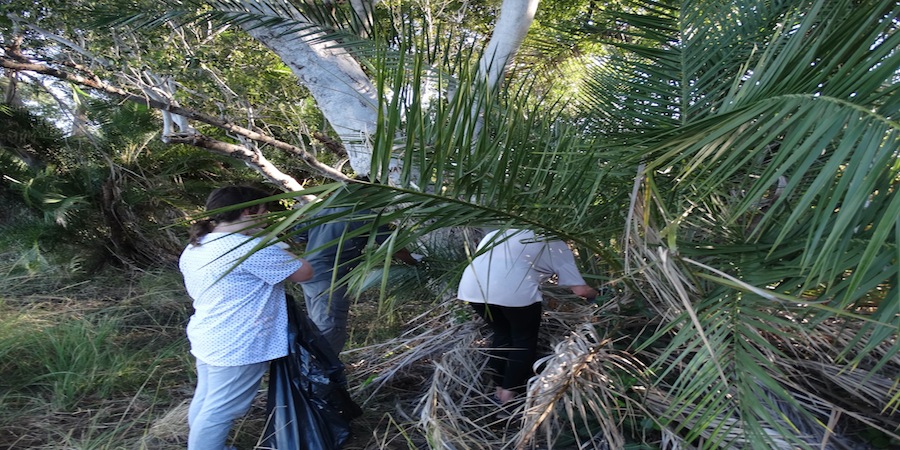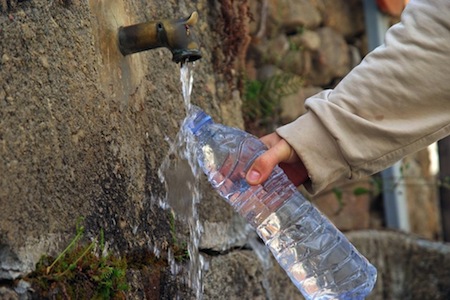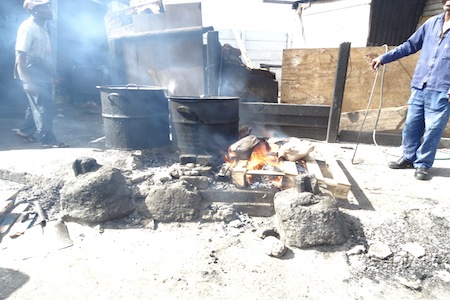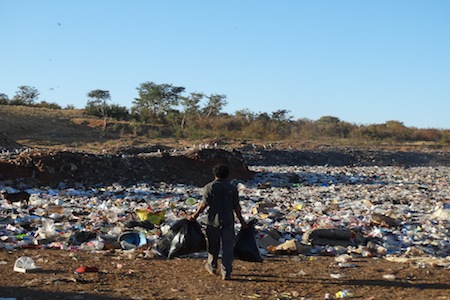It’s easier to be a sustainable traveller on a volunteer abroad or internship placement when there are reminders everywhere: a recycling bin here or signs over there saying “always take your trash with you.” Maybe the country you’re visiting has already taken steps towards sustainability! However, many developing nations do not have the resources to transition to a sustainable model, and often, ingrained traditions can seem anything but sustainable. It can be sad to arrive and realize that in your destination, being sustainable isn’t a cultural priority at all.
So the question facing those that volunteer or intern abroad is: how can I travel sustainably in a country that does not promote sustainability?
- Vehicles polluting the air, garbage littering the streets, the overuse of fossil fuels, deforestation – these are all things you may witness. In your home country, over-consumption often looks different, although it is most definitely still there, so it can feel overwhelming to see our collective strains on the environment in action. By taking a few small steps, you can prevent yourself from contributing to the problem:
- Always take your trash with you and dispose of it in a proper receptacle. If this means taking plastic bags home with you, then so be it!
- If you need to buy water bottles, buy the largest ones you can find and fill up a smaller, reusable bottle as needed, saving money and plastic use.
- Help to educate those around you if you can, in a safe and welcoming manner. Join an existing local initiative to help educate locals about the downstream effects of strains on the local environment.
- There may be questions raised about the ethical standards and treatment of animals during your time abroad. You may see street dogs wandering about, monkeys forced to perform shows or traditional standards that present themselves as a challenge for your moral compass. You are responsible for your actions abroad, so make sure you do not contribute to the suffering of animals. Look into initiatives to help animals, such as removing chains from elephants in Nepal or local projects to help endangered species. Here are some points to bear in mind:
- There is a fine line between culture and cruelty. You should never shame a culture for what is their norm. At the same time, do not contribute directly or indirectly to the suffering or abuse of animals. You cannot personally save all the suffering animals, but you can help to make change, by not participating, or helping projects that support efforts to end cruelty.
- Don’t purchase products that are made from animals such as ivory, fur, turtle shells and more.
- Don’t pay to have your photo taken with wild animals, as this only promotes the capture of wild animals and condemns them to a life of slavery.
- When possible, find the most ethical and humane horse, donkey and camel rides by checking that the animals are in good health, are treated well and have access to food, water and shelter. If you can avoid taking any rides that give you concerns about the animal’s treatment, do so.
- Lastly, you may come across unsustainable and potentially harmful misunderstandings of capacity, especially when volunteering abroad. In many developing countries, there is a lack of formal training in the fields of medicine or building, for example. It is important to remember your own personal capacity for helping to ensure you do not do more harm than good by agreeing to do something you are unable to do. Many times you will be seen as possessing knowledge because you are lending specific skills in a field or because you are perceived as coming from a background where education is a priority. However, if you are not properly trained you can hurt yourself, the local community and promote unethical practices.
- Always understand your personal capacity and what you feel comfortable doing. If you are a nursing student, do not deliver a baby even if urged to do so by a local. Understand that by stepping into a role you are not properly trained for, you can hurt others. Politely decline, saying that you are not comfortable or trained to do so and would rather assist in a different manner.
- Never treat locals will disrespect. If you see a teacher hitting their students, try to maintain composure. Do not raise your voice or yell. If you are asked to treat the children the same way, politely decline and explain that the behavior is not permitted in your own community.
- Understand that acceptable level of hygiene and sanitation may differ, and although you may ask for certain standards to be met, this might not be possible. Speak with a local onsite to convey any worries you may have, and be considerate in your discussions.
Above all, show respect for the local culture and the people you come into contact with. While there may be cultural differences that challenge you and force you to change your perspectives, you will not make any difference if you criticize and insult.
At times, travelling abroad can be a double-edged sword. On one hand it brings in valuable income that can help economic development, but on the other hand, it can promote unsustainable practices. Try to do your part where you can, make a difference where you can, and soak in your surroundings while you’re abroad!





Recent comments